 Politics
Politics
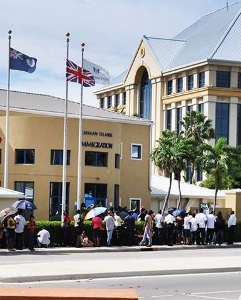
Enforcement still in question
 (CNS): Making the changes to the government’s newly gazetted immigration law and regulations work will depend heavily on enforcement and the prevention of abuses. Although concerns were raised by the opposition benches during the debate on the law last week that there was no new money in the budget for enforcement, the premier said that 13 new immigration officers would be recruited. Five of those will, he said, be dedicated to ensuring that in future employers who are dishonest in any way regarding the employment of foreign workers will face the consequences. But with the recruitment process for those posts only just underway, it will be the current immigration staff that will manage the regularization of 1,500 TLEP holders over the next 45 days.
(CNS): Making the changes to the government’s newly gazetted immigration law and regulations work will depend heavily on enforcement and the prevention of abuses. Although concerns were raised by the opposition benches during the debate on the law last week that there was no new money in the budget for enforcement, the premier said that 13 new immigration officers would be recruited. Five of those will, he said, be dedicated to ensuring that in future employers who are dishonest in any way regarding the employment of foreign workers will face the consequences. But with the recruitment process for those posts only just underway, it will be the current immigration staff that will manage the regularization of 1,500 TLEP holders over the next 45 days.
Opposition Leader McKeeva Bush, who opposes the bill because he says it is not immigration that is causing local unemployment but a lack of investment and too small a population, has said that he does not believe government can enforce the law.
“Government is being less than genuine on the matter of enforcing what they say they are trying to accomplish with Caymanians getting employed,” McKeeva Bush told CNS following the gazetting of the new law. "It’s not just enforcement; it’s the impossibility of the whole programme. Firstly, everything in the whole programme’s success, as the government says it wants, depends on immigration officers having to check on someone to ensure that they are doing what the law says. But there is a reduction in the money for staffing.”
Although the law introduces a fine of $20,000 for lying to the board, Bush pointed out that there was always a fee for lying to the boards but no one was ever prosecuted as there was never anyone policing the law to find out which employer or employee was lying about which Caymanian was qualified or not.
“I maintain that our problem is not immigration, though; it is that our economy is not moving forward,” he said, adding that before and after Hurricane Ivan in 2004 there were the highest amount of work permits in Cayman’s history and there was little or no local unemployment because all who wanted work could find it.
Bush said the economy was weak because of the opposition to the projects he had proposed during his time in office from the PPM, the former governor Duncan Taylor and others. Bush said the only way to give people jobs was with an economy that was moving ahead with sustainable development.
However, the independent members on the opposition benches believe that unemployment had been exasperated by the failure of the authorities to enforce the previous law and they believe the changes now passed by the PPM government will make things worse. Where they agree with Bush is on the area of enforcement.
During his debate on Wednesday the independent member for North Side, Ezzard Miller, pointed out that while government had increased the funding for handling permanent residency applications, there was no money in the budget allocation for immigration enforcement.
Miller has raised particular concerns over the 1,500 TLEP holders, who instead of leaving on Monday are now queuing at immigration. The workers will need to regularize their status while their employers go through the process of either finding a Caymanian to replace them, applying for a new permit or letting them go within the next 45 days.
While Premier Alden McLaughlin has admitted that the recruitment of the 13 new officers will not be completed until the New Year, he said that the situation regarding the Term Limit Exemption Permit holders would have been difficult even if government had opted to let them all go, as employers would still have to advertise for and recruit their replacements.
McLaughlin told CNS that money has been allocated in the budget for enforcement as five of the thirteen new posts will be focused entirely on policing employers and business staffing plans and nothing else. He said that these new officers will ensure that positions are not inflated when advertised to suit a particular worker and that work permit applications are not misleading. He said the immigration regime will become more efficient as the chief immigration officer and her staff begin to handle more applications rather than waiting on the board to approve every single permit.
McLaughlin said that too much was being made about the decision to allow 1,500 TLEPS holders to stay because the situation would have been far worse if they had all been forced to leave on Monday. He said that so far things had gone relatively smoothly and the processing of these workers was now underway.
The premier said the changes in this bill were just the first step in a complete overhaul of the immigration regime. In four months his government had managed to do far more than the opposition leader had during his three and a half years in office to tackle the various problems relating to immigration and the broken system.
“What did he do while in office? He talked the talk but what action did he take?” McLaughlin asked, as he pointed the finger at Bush for the creation of the Term Limit Exemption Permits problem in the first place, which was compounded with the termination of them all on 28 October 2013. “He is directly responsible for this situation,” the premier told CNS. “I cannot believe that anyone could come up with such a short sighted policy."
Pointing to further changes next summer, McLaughlin said that government would be enforcing the law in earnest and at least making sure local workers were no longer marginalized as a result of a poor enforcement regime.
See new Immigration Law and Amendments as gazetted on Friday below.
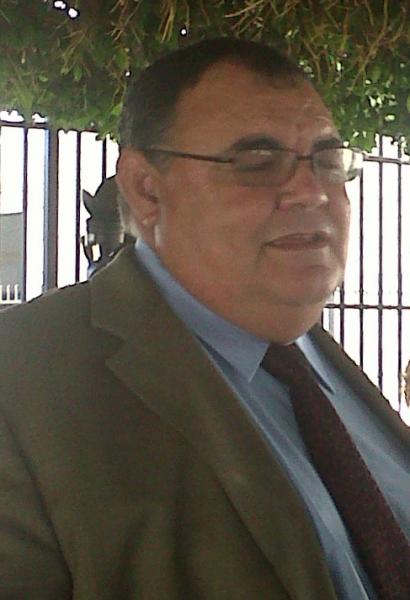
Miller plans legal challenge
 (CNS): The independent member for North Side has said he intends to challenge the newly passed immigration law in the courts if the governor assents to the bill because he claims it is not constitutional. During the debate Wednesday Ezzard Miller said that, contrary to government’s position, there was no emergency to allow it to waive the constitutional requirement that laws are published 21 days before the start of the meetingin which they are to be presented. Although the Immigration Amendment bill 2013 was published several weeks before members debated the controversial changes to local immigration policy, it did not comply with the three weeks. The government's position was that this had to be waived because of the emergency surrounding some 1,500 Term Limit Exemption Permit (TLEP) holders.
(CNS): The independent member for North Side has said he intends to challenge the newly passed immigration law in the courts if the governor assents to the bill because he claims it is not constitutional. During the debate Wednesday Ezzard Miller said that, contrary to government’s position, there was no emergency to allow it to waive the constitutional requirement that laws are published 21 days before the start of the meetingin which they are to be presented. Although the Immigration Amendment bill 2013 was published several weeks before members debated the controversial changes to local immigration policy, it did not comply with the three weeks. The government's position was that this had to be waived because of the emergency surrounding some 1,500 Term Limit Exemption Permit (TLEP) holders.
If the government had not changed the law, the 1,500 expatriate workers who still hold TLEPs would have all been required to leave today, 28 October. Government’s fear was that such a mass exodus would have a serious negative impact on the economy.
However, Miller disagreed and said this was not an emergency because for every permit holder that left, if a local did not take the job a new worker would have been recruited in the same way that others who are rolled over are replaced with new workers when Caymanians are not available.
He said the government was acting as though it was an emergency for an inexplicable reason, as he implied that pressure had been applied by someone or something to make it act in this way.
During his contribution to the debate, Miller said the new law, which was passed in the Legislative Assembly in the very early hours of Thursday morning, spelt economic genocide for Caymanians and was the worst law that any government has ever brought, save for the Health Practitioners bill brought by the previous UDP administration.
Miller, who has been a vocal opponent since the government announced the planned changes to the immigration regime, said there was nothing at all in the bill to help local people and it would make things worse for them at an already very difficult time. He said the decision to rush the law through had to be at someone’s request and that some special interest was influencing government because the situation could not be described as an emergency.
He pointed out that the employers were given the term limit exemption permits by the UDP administration in order to give them two years to sort out their human resource issues and stagger the departure of workers. However, as no one had done a single thing about it, government was now rushing through terrible legislation because of appallingly bad management on the part of employers.
“We need to understand that business owners have never placed enough importance on these people to apply for the key employee provisions in the existing law,” he said, adding that this was surprising as the key employing provision was wide enough that even his dog could probably get it.
“But all of a sudden, because of bad management by businesses we have to do this,” he stated. “They have had seven years, and more recently another two, but they did nothing. So, because of bad HR managers and no succession planning we’re told we have a national crisis.”
While he said he was not naïve enough to believe all 1,500 jobs would go to Caymanians, many were still being blocked from posts held by TLEP holders. Miller pointed out that where a local did not take up a TLEP post, a new ex-pat would be brought in, so government’s fear of a mass exodus was unfounded.
“There is no moral reason or crisis that we need to allow people to stay,” Miller said as he asked exactly who it was that was exerting such influence on government to force this law.
The member also took aim at the attorney general, pointing once again to the government lawyer’s conflicting advice. Miller said when the TLEP certificate was introduced, the government was advised by his chambers that this permit could not count toward a holders' ordinary residence and therefore could not entitled them to apply for PR under the old regime. However, here was the new government saying that they had been advised by the very same attorney general that in fact it could count and if government did not to allow them to stay, there could be a surge of law suits.
Ripping the law to pieces in a long debate, Miller said there was nothing at all in it to assist Caymanians, as he railed against the “Niagara Falls” of abuses against local workers that were now being exposed, not just in the private sector but in the public sector as well.
He also used the recent appointment of an ex-pat CEO at the local telecommunication company LIME as an illustration of what he saw as the marginalisation of local workers in every sector, at every level. He said that despite the fact that locals had applied for the post, for the first time in 25 years the firm would not be led by a Caymanian.
The North Side member told his colleagues that he had significant concerns about the government’s promise to enforce the law regarding the immigration process, noting that it is already an offence to lie to immigration but there had not been a single prosecution, despite what legislators know to be thousands of transgressions.
Setting out his intention not only to vote ‘no’ but to challenge its entire legality, Miller said he could be persuaded to support the new bill with a number of changes. He set out a list of amendments, which included the publication of business staffing plans in companies. This would enable workers to see their employers' plans for recruiting, training and succession planning for locals leading to the departure of all TLEP holders before the change to rollover was introduced. However, all the suggested amendments were defeated during the committee stage deliberations in the early hours of Thursday morning.
The bill will not only allow the 1,500 TLEP holders to stay until they reach year nine, the removal of the seven year term limit has opened the door for all workers from today to be able to stay and apply for PR if their work-permits are renewed.
Despite a much more stringent regime, which is likely to see far more people refused and the government hopes will also act as a barrier to most people applying, there are still major concern about the law. By adding two years for ex-pat workers to stay, Caymanians will have to wait longer to get the chance to apply, as many people believe government will still not be able to enforce the law that locals get first refusal on all jobs for which they are qualified before a permit is granted.
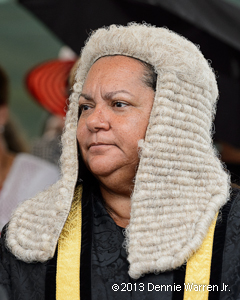
Speaker’s salary cut as deputy premier’s boosted
 (CNS): Although there was no pay increase for the elected members of Legislative Assembly returning to office at the start of this new administration, an odd alteration to salaries was noted during Finance Committee deliberations this week. As members examined line item OE2 in the annual plan and estimates for the salaries of the governor, deputy governor, premier, speaker, minsters and all elected members of the Legislative Assembly, it was revealed that the speaker’s salary had been cut and the deputy premier’s pay increased by the same amount. No details were given about the amounts involved but over $3 million was allocated in the budget for the legislators’ and the governor’s pay.
(CNS): Although there was no pay increase for the elected members of Legislative Assembly returning to office at the start of this new administration, an odd alteration to salaries was noted during Finance Committee deliberations this week. As members examined line item OE2 in the annual plan and estimates for the salaries of the governor, deputy governor, premier, speaker, minsters and all elected members of the Legislative Assembly, it was revealed that the speaker’s salary had been cut and the deputy premier’s pay increased by the same amount. No details were given about the amounts involved but over $3 million was allocated in the budget for the legislators’ and the governor’s pay.
According to documents released at the beginning of the 2009 UDP administration, at the time the speaker was a top dollar post at $171,672 per annum, which included a car and maintenance allowance each month of $200. At the time the current speaker, Juliana O’Connor-Connolly, who was then deputy premier, was bringing in $161,100 a year.
Questioning the deputy governor about the change to the salary for the post, the speaker did not indicated the amount of the cut, only that her post’s pay had been reduced by exactly the same as the salary increase given to Moses Kirkconnell, who is now serving as deputy premier. Although not begrudging her fellow Cayman Brac and Little Cayman representative the boost in his pay package, the speaker said she was very curious to know why her salary had been cut.
Franz Manderson revealed that the decision had been made by the former governor, Duncan Taylor, before he departed and he did not know the motivation behind it. He said that while he was the one who made recommendations regarding the salaries of the elected members, his recommendation to the governor had been to keep the status quo as a result of the austerity measures across the public sector.
The premier admitted during the exchange that he had requested more money for his back-benchers following the elevation of most of them to counsellor posts but he said his request had been refused and none of the usual increases had been given to members who had been re-elected.
The only two posts where salaries differed from the last administration were the deputy premier and the speaker, which O’Connor-Connolly said she found odd and a situation she had only discovered recently. Querying the arbitrary change, she said she had written asking for an explanation but there had been no response.
“I am not questioning the increase in the deputy premier’s salary,” O’Connor-Connolly said, pointing out that she too had served in the post and it was a difficult job and no doubt the minister deserved the increase. “Yet my job gets decreased by the same amount … I don’t think they should arbitrarily change the speaker’s salary without explanation,” she said as she noted both the seniority of the role and her own experience as a long serving legislator, a former speaker, minister, deputy premier and latterly premier.
“I don’t mind dropping my salary but I want to know why, given my experience, I should be paid less,” she added. Raising concerns about gender discrimination, O’Connor- Connolly said she wasn’t asking for a raise, just an explanation and “the courtesy of a response” to a letter she had sent to the governor’s office.
The deputy governor assured the speaker that he would find out why the post’s salary was cut and let her know.
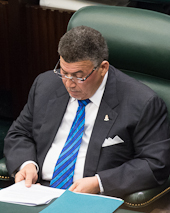
Mac opposes immigration bill
 (CNS): Taking a different position from most in his lack of support for the government’s new immigration amendment bill, the opposition leader told the Legislative Assembly Wednesday that he did not think the bill would build confidence and would be too costly. McKeeva Bush said he took the position that immigration was not the cause of Cayman’s unemployment problem as the country needed to grow its population. The issue, he said, was the economy and it was by encouraging the right people to come and invest that jobs would be created. Bush warned that it was the type of people not the quantity that mattered and said that Cayman did not need more “cantankerous people”.
(CNS): Taking a different position from most in his lack of support for the government’s new immigration amendment bill, the opposition leader told the Legislative Assembly Wednesday that he did not think the bill would build confidence and would be too costly. McKeeva Bush said he took the position that immigration was not the cause of Cayman’s unemployment problem as the country needed to grow its population. The issue, he said, was the economy and it was by encouraging the right people to come and invest that jobs would be created. Bush warned that it was the type of people not the quantity that mattered and said that Cayman did not need more “cantankerous people”.
Bush said he was not going to scoff at the work that had clearly gone into the bill but he did not believe it would achieve its aims and it was a bad deal for all concerned as it was focusing on the wrong problem. Bush said he still believed that the country needed to grow its population. He said that when Cayman had more people there were more jobs but he said the country had to pay much closer attention to who came in the first place.
“We need to check who is coming here not how many and not bring any more cantankerous people. We have enough troublesome people here already,” he said, adding that he did not think that government would be able to enforce the law it was trying to pass as it would be far too costly. He said hardly anyone had ever been prosecuted since the laws were first passed and the government had to focus on attracting investment.
Bush said people were wrong when they still saw work permit holders keeping Caymanians out of work. “Jobs need to be created for our people and that won’t be done by driving people away,” he said.
The opposition leader said that it was wishful thinking that locals would get the posts held by Term Limit Exemption Permit holders, as it would be impossible to carry out the enforcement needed to prevent people from notgetting new work permits.
“I am not going to support this bill for various reasons, but not because of the clamour but because I am thinking long term. I don’t think it will build any real confidence and the process is going to be costly. We need to build the country and it’s not immigration that is causing unemployment … It will hurt more than help. I hope that won’t be the case but I can’t see it working the way they say it will.”
Bush said nothing had been said recently to make him change his mind that the population base was too small to support the businesses that were here and if people didn’t start to recognize this issue the country would carry on tinkering at immigration piecemeal. He warned that the legislation would kill more businesses and stop more employment opportunities rather than create jobs for local people.
The change that was required, the UDP leader said, was to reduce the break in stay, as he pointed to legal opinion from the attorney general and Lord Panick that he had sought when premier. The lawyers had both said that the break in stay (the time expatriates spend off island so it does not count as continuous residency on the Cayman Islands) could be as short as the Cayman government wanted it to be. He said reducing the break in stay would eliminate the problem.
Bush said the two issues were unemployment and Caymanians being worried about being outnumbered and reducing the break in stay would eliminate the second problem.
But he lamented government’s efforts as he said there wasn’t any money in the budget for enforcement and he did not think it would be able to get the fees and fines as “no one gets caught”.
He said, “Immigration will be a problem for every government until we recognize where the problem really is. We can’t do it on our own; we need foreigners and their investment.”
Regardless of his indication that he would not support the bill and his concerns that it would not tackle the real problems, the opposition leader ended his contribution to the debate on an upbeat note. He said that, regardless of the law, he believed the future was still bright, despite what he called the “wrangling and jangling”, as the country was well placed to enjoy future economic recovery as a leading tourist destination and financial jurisdiction.
See related story on CNS: Immigration-bill-passes
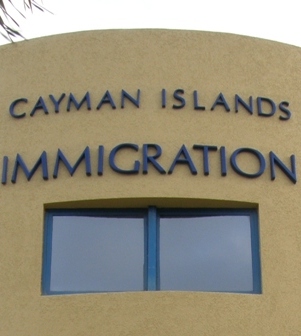
Immigration bill passes
 (CNS): Despite concerns and opposition to the legislation, the government has successfully steered its controversial immigration amendment bill through the Legislative Assembly following a 14 hour session that lasted from noon Wednesday to the early morning hours of Thursday. Shortly after 2am, legislators voted in favour of the bill. However, government lost votes from its own benches when Employment Minister Tara Rivers failed to show up to the parliament at all, sending word that she was unwell and unable to attend the critical debate. And veteran PPM backbencher Anthony Eden joined the opposition benches and voted ‘no’ to the government’s change due to his concern that more than 1,500 exemption permit holders will remain on island, entitling them to apply for residency.
(CNS): Despite concerns and opposition to the legislation, the government has successfully steered its controversial immigration amendment bill through the Legislative Assembly following a 14 hour session that lasted from noon Wednesday to the early morning hours of Thursday. Shortly after 2am, legislators voted in favour of the bill. However, government lost votes from its own benches when Employment Minister Tara Rivers failed to show up to the parliament at all, sending word that she was unwell and unable to attend the critical debate. And veteran PPM backbencher Anthony Eden joined the opposition benches and voted ‘no’ to the government’s change due to his concern that more than 1,500 exemption permit holders will remain on island, entitling them to apply for residency.
Prior to the premier’s presentation of the bill and ahead of the long debate, a petition was presented to parliament with more than 800 signatures by Ezzard Miller, the independent member for North Side. The petition is now a public document and is understood to have a significant portion of names from West Bay, even though the government’s public meeting there had changed the minds of many in the district where much of the opposition to the law had first emerged.
Acknowledging the opposition and controversies surrounding the amended legislation and the haste with which it was being brought, Premier Alden McLaughlin was still not persuaded to make many significant changes to the legislation.
He noted that the term limit had already been dropped from ten years to nine and that an amendment to the draft legislation would be made to preserve caregiver certificates to those who already had them. He said that much of the opposition had been generated because he had not done a good job at delivering the message about the changes in the first instance but considerable efforts in the last few weeks and won more support.
“Government understand that there are still those that have different views and the petition is an indication,” he said “We know that there was a march, then a demonstration of sorts at the weekend … Although the numbers are not great, there are people who are not comfortable and to those I say government takes your concerns on board," he said.
“We understand that there are real concerns about the state of the economy and unemployment and they colour views about this as they think this will make life easier to employ foreigners. We take the other view. We think it is going to make it more likely that Caymanians will be employed,” McLaughlin told the House, adding that the law introduced severe consequences for those trying to defraud the system.
More than a dozen amendments to the law presented by Miller were all ignored. These included a proposal to make business staffing plans public, force government to also follow the same immigrations regime and changing the tag from work permit holder to guest worker.
However, government has committed to addressing some of the issues raised by the North Side member, including removing government’s exemption from the work permit regime and limits for expatriate employees.
As he opened the debate, the premier reminded members that the Progressives had campaigned in the run-up to elections on a platform that included a revision of immigration legislation. This was specifically to address the question of the term limit policy, the removal of key employee and the question of permanent residency. He said the PPM view articulated by him on behalf of party on the hustings was that the immigration regime was not working.
“What we didn’t realise at time was that the situation with Term Limit Exemption Permits (TLEP) was so difficult,” he said, as he spoke about the expiration of more than 1,500 permits on 28 October. “Very early in office we realized that some policy decisions and steps had to be taken to address this,” he added, noting that the government had struggled to comprehend why the UDP government would implement a policy which saw every permit expire on the exact same day.
McLaughlin reiterated the message delivered by government of late that all employers must advertise these posts within 45 days of the law being enacted, and he said they would not get work permits if Caymanians were available. Justifying the decision tobring the 1,500 TELPS into the system rather than allowing them to leave over a staggered period, McLaughlin warned about potential law suits that could follow if the TLEPs were simply told to go. He said that legally it would be hard to argue that the time spent on a TLEP could not count as ordinary residency.
Articulating the main thrust of the bill, which was the removal of key employee status, a policy that gave the power to choose who stays here to employers instead of government, McLaughlin spent considerable time stressing the fact that the new PR application system would deter many people from applying. He said only limited numbers would now meet the more stringent criteria.
The premier stated that while TLEPs would now have the same right as anyone who stayed here for eight years to apply for PR, “whether they get it or not, is quite another matter as they will need to meet a significantly more demanding point system,” he added.
Removing the seven year term limit and allowing everyone the opportunity to make a PR application if they chose to stay long enough created a level playing field in the first instance. More importantly, he said, it puts the decision about who stays in Cayman and who goes on to become Caymanian back in the hands of government.
Emphasising a new enforcement regime and more objective and transparent criteria where people can self assess, the premier said he believed this would deter applicants who have no chance of being granted residency from applying but would help those who have a chance to make sure they can meet the criteria before they go through the process. Spelling out the details of the new regime, including addressing the abuses of the system and particularly appeals, he pointed to a new era of enforcement.
He said that when a few of these abusive employers and applicants were prosecuted, “the message will hit home.”
Acknowledging that the issue of unemployment was heavily tied to the bill, he said the employment minister was tackling that side of the equation with myriad initiatives to help skilled Caymanians find work and train the unskilled.
However, Tara Rivers was absent from the chamber throughout the day and made no contribution to the debate about her position on the legislation or how she would be helping to ensure that Caymanains would get first refusal on the TLEP jobs. Instead, once again, Winston Connolly, the government back-bencher and counsellor in the employment ministry, stepped up to the plate late in the night to reveal what was happening to deal with that on the absent minister’s behalf.
Check back to CNS for more on the immigration debate, including the view from the opposition benches, over the next few days.
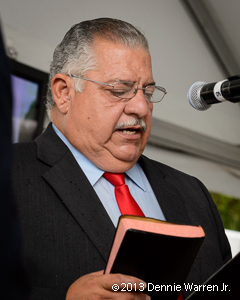
KT waits on ICTA report
 (CNS): Following a number of questions this week over the recruitment practices of public authorities and the particular revelations about how two posts were filled at the Information Communication and Technology Authority (ICTA), the minister responsible has ordered a full enquiry into the issue. The minister with responsibility for the agency, Kurt Tibbetts, told members of the LA on Monday that government was taking the situation seriously and he was waiting on a report from the board, which had held an emergency meeting at the weekend. Depending on the outcome, he promised the independent members that there would be accountability.
(CNS): Following a number of questions this week over the recruitment practices of public authorities and the particular revelations about how two posts were filled at the Information Communication and Technology Authority (ICTA), the minister responsible has ordered a full enquiry into the issue. The minister with responsibility for the agency, Kurt Tibbetts, told members of the LA on Monday that government was taking the situation seriously and he was waiting on a report from the board, which had held an emergency meeting at the weekend. Depending on the outcome, he promised the independent members that there would be accountability.
The troubles started when North Side MLA Ezzard Miller questioned ICTA Director David Archbold and eventually forced the authority boss to revealed that two recent members of his team had been recruited to very senior positions by circumventing the mandated recruitment processes for public sector jobs.
The two men, one of whom was given the post of deputy director with an eye to taking over Archbold’s job when he retires, appear to have been hand picked and then the jobs moulded to fit their qualifications. Contracts were offered and signed by the men, one of whom had been a previous board member and the second an overseas candidate, before the submission deadline in the advertisements in the local press had expired, making a mockery of the process.
The issue raised considerable concerns in the country’s parliament, and updating members, Tibbetts said he had instructed the chief officer in his ministry, Alan Jones, to meet with the board chair to update him on what happened, relay the significant concerns of the LA and then to instruct him to investigate the matter and deliver a report before the end of Finance Committee, which is expected to conclude Wednesday.
The minister said a meeting had been held on Saturday, then a letter was sent to Archbold instructing him to send a full report in relation to the hiring of the two men. Depending on that report, the board was expected to recommend further action.
“I want to make it clear that I, the premier and the government take this seriously and we will be discussing it in Cabinet tomorrow,” Tibbetts stated. He confirmed Archbold’s post is appointed by Cabinet, via the board and chair, who are all responsible for recruitment, but the final decision will be made by Cabinet guided by the facts and recommendations of the board once the investigation was complete.
Answering questions from Miller about the transgressions of the director when he came to parliament and misled members, Tibbetts said it was important government got to the bottom of the whole matter first, but action would be taken. Miller said, however, that if it wasn’t, he would use the law to call the director to the bar and answer the charges directly to members, who would then decide his fate.

Customs top job troubles LA
 (CNS): Another recruitment difficultly for the civil service disrupted Finance Committee when it resumed Monday, with the issue of the customs department’s top job dominating the morning’s proceedings. Opposition Leader McKeeva questioned the deputy governor about someone from another civil service department without customs experience being given the top job, by-passing experienced staff in customs, because of the additional requirement to the collector of customs post of a master’s degree. Although her name was never mentioned, CNS has learned that Samantha Bennett is being seconded from immigration into the post.
(CNS): Another recruitment difficultly for the civil service disrupted Finance Committee when it resumed Monday, with the issue of the customs department’s top job dominating the morning’s proceedings. Opposition Leader McKeeva questioned the deputy governor about someone from another civil service department without customs experience being given the top job, by-passing experienced staff in customs, because of the additional requirement to the collector of customs post of a master’s degree. Although her name was never mentioned, CNS has learned that Samantha Bennett is being seconded from immigration into the post.
Although Bennett is a Caymanian and the deputy chief immigration officer, she has no direct customs experience, and Bush expressed his concerns, while questioning the appropriations to the customs department in this year’s budget, that well-qualified long serving officers in customs were being by-passed as the job was, he said, manipulated to hand pick a particular person to fill the post.
Moving a motion that a member from the existing customs team be selected to head the department until a full time permanent Caymanian collector of customs is appointed, Bush clashed with Deputy Governor Franz Manderson, who pointed out that civil service recruitment is the remit of his office and not elected members.
Bush argued that since he was voting on a line item he had a right to move a motion, and while he was not telling the deputy governor who to recruit, he said there were at least four people in the department now capable of taking the job. He said morale was low already in the department, which is a critical revenue generator for government, as a result of the collector’s post being vacant for some two years, and Bush claimed that to bring in an outsider with no experience in that department would make things worse.
The UDP leader implied that the addition of a master’s degree for the post was another example of manipulation. He said there was some suggestion that the person selected was coming in to “clean things up”, when there had been no reports of anything untoward at the department.
“I am worried about posts being fixed again," he said in the wake of revelations earlier this week in Finance Committee. He said the Cayman customs department was one of the best in region and staff there should not be overlooked.
“If there was any kind of slackness there we would have heard about it," he said. “We have not had any great complaints about how they operate … If something was wrong then someone should have said, but I know from what I am hearing they have been doing their work."
Bush insisted that the criteria for the job had been stretched to fit a specific person, making a mockery of the open recruitment process. Admitting that he had no responsibility to hire people, Bush maintained that the problems still land with elected members, who have no ability to tell the deputy governor who to hire and fire.
“I can’t support this when people are not treated right,” he added referring to the vote for the appropriation to the department for its administrative costs. “We have people in customs that can do the job.”
However, Deputy Governor Manderson said that government had faced significant difficulties trying to fill the post because after three rounds of recruitment no one who applied had passed the assessment test.
As a result of the failed efforts, it was decided, he said, to increase the post to one equal to other enforcement heads, such as the police commissioner and the chief immigration officer. The increase in grade coupled with a better package had then in turn called for an increase in qualifications.
The post was then advertised again and a number of people applied but only one person met the qualifications. In order to have an open recruitment process, the deputy governor explained the need for at least two people to be interviewed. With only one suitably qualified candidate, however, Manderson said that a decision was made to offer that candidate a secondment.
Warning Bush that the motion infringed on his responsibilities, Manderson said it could not be right.
The opposition leader said that the deputy governor may feel he was being dictated to and he could “take it anyway he please” but he had a responsibility to try to make some intervention on behalf of his constituents.
“What I see being done is wrong because it’s fixing it for someone and this has gone on for too long. You have got good people who can do the work but there is too much building of their own hedges,” he said, referring to the civil service management.
There was a mixed response from the rest of the House, with several government members, including the premier, who had also voiced his concerns about the addition of a master’s degree requirement, abstaining from the vote. Bush’s motion was, however, defeated because, despite several abstentions, he could only muster up one other yes vote besides his own, as both the independent members, Ezzard Miller and Arden McLean, had shied away from getting into the fight and were absent from the Chamber when the vote was called.
What was clearly a sticky situation for members, with several (though not all) of them aware that it was Bennett who had been selected for the job.
Bush said it was being proposed that someone without experience was being placed in the job and happened to have a master’s degree but they did not have customs experience and none of the arguments he had heard held water.
“Why people on that side can’t see through this, I don’t know,” he said as he questioned whether they didn’t support the motion just because it was him who had moved it.
Although it was defeated, Alden McLaughlin clearly had some sympathy with Bush’s point and he said there had been a number of discussions about this issue with the deputy governor. But the premier said his main concern was the need to fill the substantive post as a matter of urgency.
“Morale and operations are suffering as there has been no leadership for nigh on two years and we ought not to defer the appointment any longer. The position we have taken is not necessarily to insist the person holds a master’s degree but what we need is experience and competence and we ought not to rule out people with no masters but meet the rest of the criteria,” McLaughlin said.
Acutely conscious of the fact that the appointment of a public servant is not a matter for elected officials, he said he could only express concerns about the way this matter has proceeded. He did not want to see a constitutional crisis, he said, but the people of Cayman needed to be informed about what was really happening.

Dump solution no time soon
 (CNS): Although Osbourne Bodden, the minister responsible for environment health, has committed to finding a solution to the George Town dump, known as "Mount Trashmore", work on addressing the capital’s unsightly and smelly rubbish heap won’t be starting any time soon. Government will be seeking a public-private partnership with a company that will be willing to wait for returns over two decades. The PPM has promised to address the dump on site through a combination of waste-to-energy and recycling, and the Department of Environmental health (DER) is now working towards a request for tenders. But Bodden said but it would not begin the project until the end of next year or early 2015.
(CNS): Although Osbourne Bodden, the minister responsible for environment health, has committed to finding a solution to the George Town dump, known as "Mount Trashmore", work on addressing the capital’s unsightly and smelly rubbish heap won’t be starting any time soon. Government will be seeking a public-private partnership with a company that will be willing to wait for returns over two decades. The PPM has promised to address the dump on site through a combination of waste-to-energy and recycling, and the Department of Environmental health (DER) is now working towards a request for tenders. But Bodden said but it would not begin the project until the end of next year or early 2015.
Speaking in the Legislative Assembly during the budget debate, Bodden said the department was working hard to facilitate the waste-management project but he warned that there was "a lot work to do” and government had to work within the Framework for Fiscal Responsibility.
“We have been unable to date to find the proper solution or the right process or the right people,” he admitted, but said it was the foremost problem on his agenda and he was committed to getting the project started, once and for all.
The minister said the government was looking for a private company that was willing to work in partnership with the public sector for some 15-20 years because whoever comes in will need to look long term for a return. He said there needed to be discussions with the Water Authority over the impact on that utility as well as CUC regarding the energy that would be produced from the waste. Bodden said that government had told the Dart Group, the dump’s immediate neighbour, that it would be dealing with the landfill where it is and the developer had offered to do what it could to assist.
Although the dump situation has dragged on for years and the solution looks increasingly costly, the minister vowed to tackle the issue. “I am going to drive this process extremely hard to make sure it is up and going,” he said, so it would be underway by the end of next year or early in 2015.
Until then, he said, DER would be promoting educational programmes about better waste management so that the whole community could do its part to control waste generation. He said that the existing solid waste management system would be reorganised to improve efficiency and reduce risk.
Bodden also promised to address the ongoing garbage collection issue before the end of this month. Government has ordered three new trucks, which are expected to arrive next month, and has budgeted for two more, plus the trucks it can salvage from the existing fleet. So the collection should be back to twice a week before long, he said.
The minister said the existing fleet of very old trucks and the lack of capital investment had led to the trucks being completely worn out.

Civil service body rejects redundancy policy
 (CNS): The organisation that represents local civil servants has rejected government’s proposed voluntary redundancy policy as it says that management has not taken on board the concerns raised by its membership. James Watler, the president of the Cayman Islands Civil Service Association, is urging members to attend a meeting on Thursday 24 October, where the issue will be discussed and advice offered for those considering taking up the offer to leave the service with a payoff. He said there were a number of concerns with the policy, especially the five year restriction on returning to the public sector. Although CICSA was consulted, he said, they were “surprised and saddened” that the association's concerns were not reflected in the final version.
(CNS): The organisation that represents local civil servants has rejected government’s proposed voluntary redundancy policy as it says that management has not taken on board the concerns raised by its membership. James Watler, the president of the Cayman Islands Civil Service Association, is urging members to attend a meeting on Thursday 24 October, where the issue will be discussed and advice offered for those considering taking up the offer to leave the service with a payoff. He said there were a number of concerns with the policy, especially the five year restriction on returning to the public sector. Although CICSA was consulted, he said, they were “surprised and saddened” that the association's concerns were not reflected in the final version.
The deputy governor released the voluntary separation policy (VSP) recently with the goal of reducing the government’s headcount, as pressure to cut public spending continues. The VSP is one of numerous measures to cut operating costs and the size of the civil service.
However the CICSA had recommended other ways of dealing with the headcount and said this policy would create a new problem between local and foreign applicants for public sector jobs.
“Of particular concern to members who are considering voluntary separation is the restriction from applying for any civil service job for five years hence. This applies to any vacant advertised job, in any section of government, not just your previous employment,” he said.
“As the Voluntary Separation Policy only applies to Cayman citizens, and there appears to be no similar measure for contracted officers who have not been renewed as part of the government’s on-going civil service cuts, a baffling and disturbing dichotomy between Caymanian’s and non-Caymanian’s potential to apply for jobs is created,” he added in a statement released to the membership and the public.
Watler explained that instead of a separation policy, CICSA had recommended a manpower survey to determine the needs of the civil service while also identifying the knowledge and skills that existed to better help in reducing the numbers .
"It is our view that clearly there is a lack of willingness to engage in a holistic review of civil service staffing and staff reductions, of which it is strongly felt that voluntary separation should be a third, not second, resort,” he said, as he encouraged members to attend the upcoming Annual Meeting on 24 October at the South Sound Community Centre at 5:30pm, when they can discuss all the issues relating to the changes in the CS.
See full statement below, as well as contact details for advice on the VSP and related issues.

Local kids break exam records
 (CNS): The education ministry has now confirmed that this year’s external exam results for local students have broken all previous records, with almost 70% of Year 12 students from government schools achieving high level passes in at least five subjects. Far outstripping even last year’s record results, Chief Education Officer Shirley Wahler said 69.5% of Year 12 students leaving the government system achieved five or more Level 2 (O’ Level equivalent) passes at A*-C at GCSE/IGCSE or I-III at CXC, compared with 49% last year and 29% just five years ago. This means 267 students achieved the required standard compared to just 88 in 2007, a growth of 200% in just five years.
(CNS): The education ministry has now confirmed that this year’s external exam results for local students have broken all previous records, with almost 70% of Year 12 students from government schools achieving high level passes in at least five subjects. Far outstripping even last year’s record results, Chief Education Officer Shirley Wahler said 69.5% of Year 12 students leaving the government system achieved five or more Level 2 (O’ Level equivalent) passes at A*-C at GCSE/IGCSE or I-III at CXC, compared with 49% last year and 29% just five years ago. This means 267 students achieved the required standard compared to just 88 in 2007, a growth of 200% in just five years.
More than 67% of all Year 12 students achieved a Level 2 pass in English, which compares well with regional result of about 57% of students across the Caribbean. Mathematics grades have also improved over last year’s 26%, but with only 37.5% of students reaching the high level pass mark it remains an area of concern for educators.
As well as the hard work of teachers and the support of parents, Education Minister Tara Rivers also credited the Cayman Islands Further Education Centre (CIFEC) for the boost in results. All Year 12 students on Grand Cayman who remain in the government system now attend CIFEC, which was established three years ago in September 2010, when the high school system on Grand Cayman was reorganised. Students now take their Level 2 exams at the end of Year 11, using Year 12 to take vocational courses, retakes or join the duel entry programme with UCCI to take pre-college courses.
This summer was the first time that Year 11 students on Cayman Brac took their external examinations, sitting them at the same time as the Year 12 students, and those students (the Layman Scott High School graduating Class of 2014) have already achieved a 69% high level pass rate. This figure is predicted to be 80% by the time that these students graduate next year as the first year group on the Brac to be taught within the restructured Year 12. This would make them the highest achieving class in the history of the Cayman Islands, parents and teachers of the students were told by CEO Wahler at a recent meeting on the Brac.
However, for the first time this year, the Year 12 students on Grand Cayman slightly bettered their peers on the Brac, where 66.7% of the school's Graduating Class of 2013, who did not have the benefit of optional re-takes like the Year 12's at CIFEC, achieved 5 or more high level passes, bucking the trend of significantly better results on Cayman Brac in previous years.
Outlining the improvements in results overall, Minister Rivers told the Legislative Assembly this week, “Of the 267 students who met the benchmark standard of 5+ passes, 110 of those met that standard because of their additional studies at CIFEC, with 119 additional Level 2 qualifications being earned in maths and English.”
CIFEC also helped students in technical and vocational studies, with 200 students earning an internationally recognized vocational pass, and the minister welcomed CIFEC’s emphasis on incorporating work place readiness, allowing all students to undertake a formal study of employability skills.
With the record breaking results, Shirley Wahler said the community needed to recognize that the work of teachers is often difficult and undervalued but the results were a testimony to the hard work that has gone into improving the education system. Chief Officer Mary Rodrigues pointed to the raising of expectations among both students and parents.
See the minister’s full statement about the results delivered in the LA on Monday.